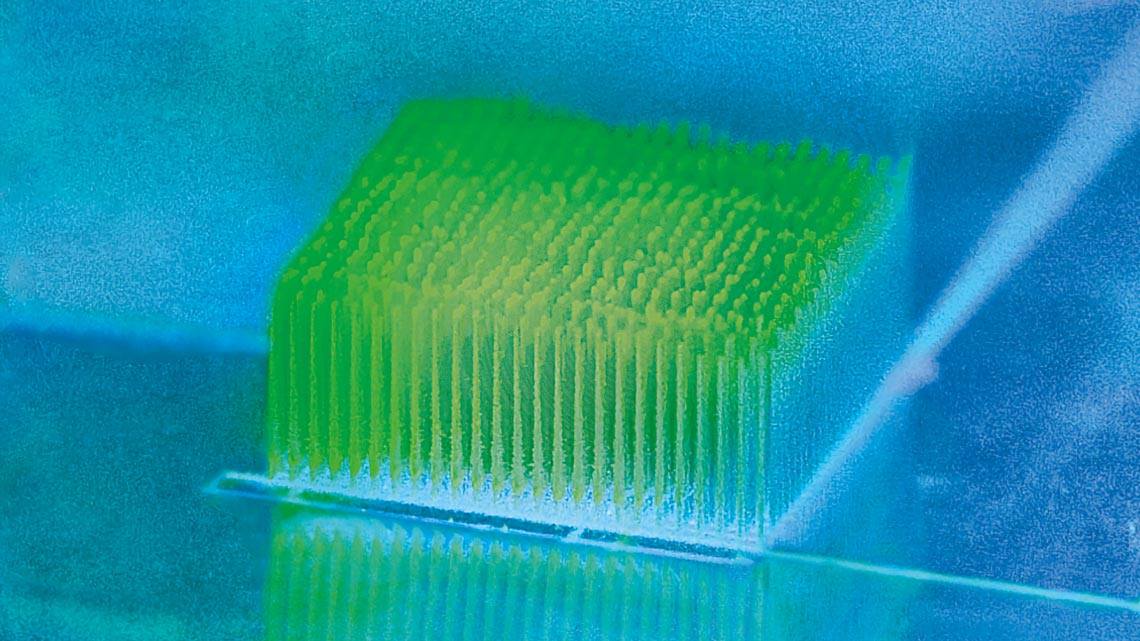Cyanobacteria—microscopic organisms that perform photosynthesis—like to live the high life. Under ideal conditions with an abundance of light, they proliferate faster and convert more light energy into chemical energy. As a result, they release more electrons and generate a stronger electrical current. A group led by Jenny Zhang, a chemist from the University of Cambridge, UK, found that giving these microorganisms the right type of environment increases energy production more than tenfold (Nature Materials, March 7). The scientists created a strategy for printing three-dimensional electrodes that promotes cyanobacteria growth. They create micrometric pillars that the bacteria use to gain access to more light. “They’re like glass skyscrapers,” Zhang told the university’s website. The group found that by increasing the height of these pillars, they could increase electricity production, making the method competitive with other forms of renewable bioenergy production.
Republishbiochemistry
Skyscrapers for bacteria communities

Microscopic image of micropillar array and cyanobacteria
Gabriella Bocchetti / University of Cambridge